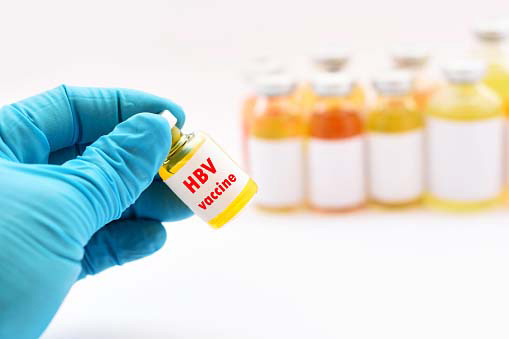Hepatitis B Vaccines: What You Need To Know
Hepatitis B is a highly contagious liver disease caused by the Hepatitis B Virus (HBV). HBV spreads when anyone comes in contact with the infected blood or certain body fluids (like urine or semen) of an infected person. The severity of this infection can range from being mild to chronic, lasting to a life-long serious condition. Thus, the best way to prevent this infection is to get vaccinated.
Read here in detail all about Hepatitis B vaccinations.
Vaccination and its dosage

The Hepatitis B vaccine will help to prevent the HBV infection and provide protection from chronic conditions like liver cancer and cirrhosis. The vaccine is provided in different dosage-schedule, as per the age bracket:
- Children (newborns to 10 years) normally get three doses:
- 1st dose: At birth
- 2nd dose: Between 1-2 months of age
- 3rd dose: Between 6-18 months of age
- Adolescents (between 11 years - 18 years of age) follow a three-dose regimen:
- 1st dose: Can be taken on any date you choose
- 2nd dose: After one month
- 3rd and the final dose: 6 months after the first dose
- Unvaccinated adults are administered three doses:
- 1st dose: Can be taken on any date you choose
- 2nd dose: Within four weeks after the first dose
- 3rd dose: 5 months after the second dose
Who should get the HBV vaccine?
.jpg)
Although it is vitally important for all children to get vaccinated for Hepatitis B infection right at birth, it is recommended for all unvaccinated children up to 19 years of age. Also, the ones mentioned below who are usually at a higher risk of getting infected should certainly get vaccinated:
- HIV-positive individuals
- People who’re being treated for any sexually transmitted infection
- People who take drugs or share needles/syringes
- Public health workers exposed to blood and body fluids
- People traveling to areas with high rates of hepatitis B
It’s a relatively an inexpensive and a safe vaccine. Therefore, in the present time, just about everyone should receive the hepatitis B vaccine, except the ones suffering from any other severe illness or any life-threatening allergic reaction.
How long does HBV vaccine last in the body?

Centers for Disease Control and Prevention (CDC) indicates that the vaccine safeguards people’s health for at least 20-30 years. It benefits them with long-term protection against clinical illness and chronic hepatitis B virus infection if they had initiated Hepatitis B vaccination earlier than 6 months of age.
Keeping in mind that liver infections are as common as cold or flu, it is only wise that one gets tested for Hepatitis B and gets timely vaccinated. The vaccine is safe and effective, and in most cases, infected people are able to combat the virus. Remember, a small step towards your liver’s health can go a long way in helping it function normally.
For any query related Hepatitis B virus and vaccinations, you can consult an Internal Medicine Specialist at www.healthcaremagic.com
Ask a Specialist
Recent Questions


